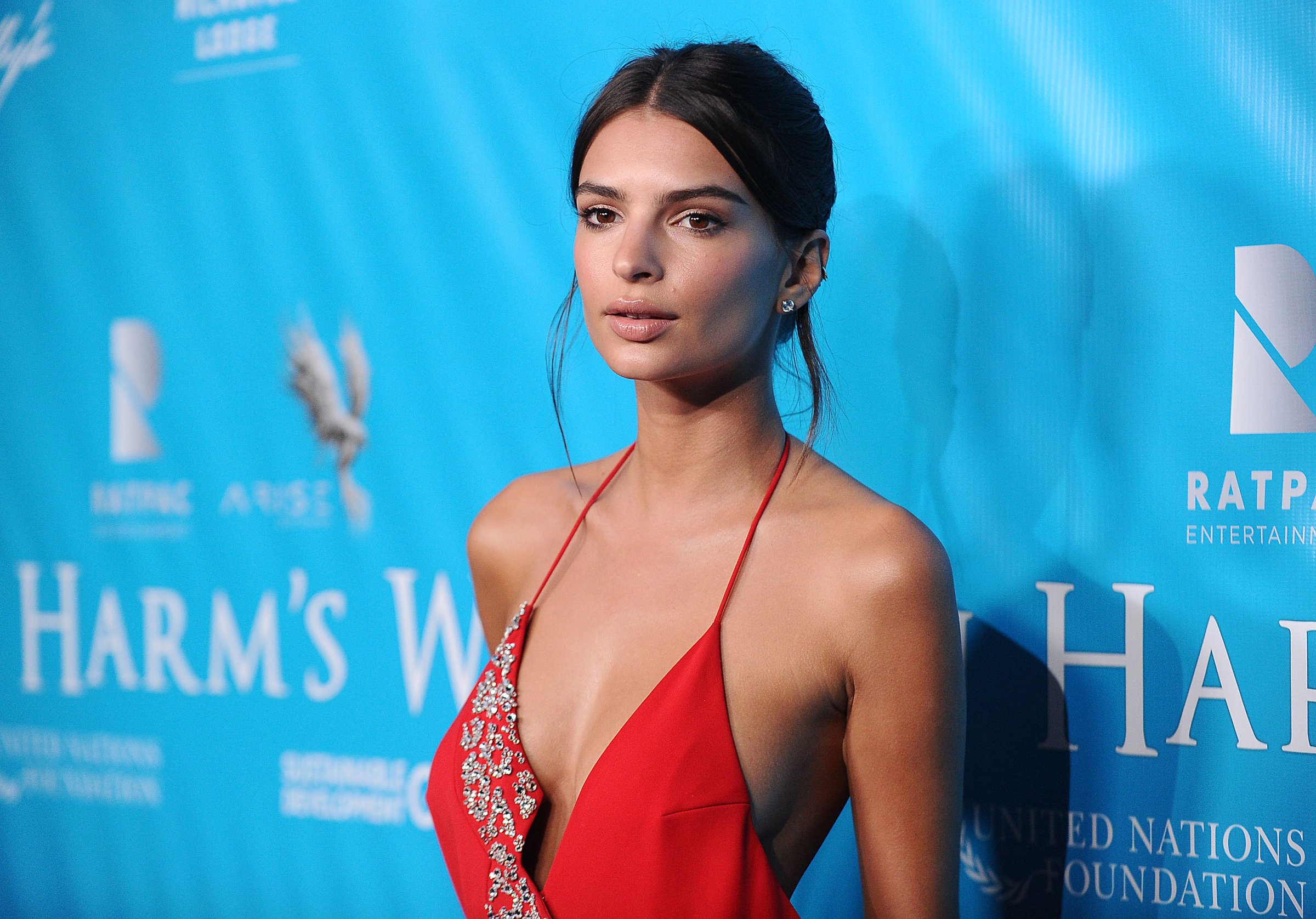
Emily Ratajkowski does a lot more than solely living life as a supermodel and starring in music videos. She’s an outspoken feminist who’s calling out double standards, especially in terms of attention.
For a recent Glamour cover story, Ratajkowski penned an essay where she opened up about critics who see her as”a desperate attention whore” rather than an activist. After speaking at a Bernie Sanders rally in February, for instance, she wrote critics called her and that she had “an excess of beauty and lack of brain.”
These comments, Ratajkowski said, helped her realize the double standard that women too often face for seeking attention, whether or not it’s intentional. She wrote, “Our culture has a double standard that runs so deep, many women have actually built up an automatic defense—attempting to be a step ahead of potential critics by making sure we have ‘real’ reasons for anything we say or do.”
She compares the situation to when she and her friends get ready to go out at night. Her girlfriends “don’t want to be seen as desperate or vain,” whereas guys “don’t think twice about whether this shirt or that cologne will make them seem attention seeking.” The double standard exists in this situation because, Ratajkowski’s wrote, “we view a man’s desire for attention as a natural instinct; with a woman, we label her a narcissist.”
Ratajkowski wrote one example of the difference in attention reception is Mick Jagger and Madonna. She writes, “Mick Jagger is 73, and he still sometimes wears his shirt open and gyrates onstage.” She continues: “Meanwhile, when Madonna, who is 58 and a revolutionary in that same kind of artistic sexuality, wears a sheer dress to the Met Gala, critics call her ‘a hot mess’ who’s ‘desperate.'” One musician is celebrated, while the other is criticized.
Ratajkowski thinks we need to change the conversation about the meaning of attention. It’s a human instinct, yet women continue to be criticized more for wanting it. She believes, “wanting attention is genderless. It’s human.”
What exactly does Ratajkowski’s “ideal feminist world” look like? According to her it, “shouldn’t be one where women suppress their human instincts for attention and desire…It’s not our responsibility to change the way we are seen—it’s society’s responsibility to change the way it sees us.”
Read her full essay for Glamour here.
More Must-Reads from TIME
- Donald Trump Is TIME's 2024 Person of the Year
- Why We Chose Trump as Person of the Year
- Is Intermittent Fasting Good or Bad for You?
- The 100 Must-Read Books of 2024
- The 20 Best Christmas TV Episodes
- Column: If Optimism Feels Ridiculous Now, Try Hope
- The Future of Climate Action Is Trade Policy
- Merle Bombardieri Is Helping People Make the Baby Decision
Contact us at letters@time.com